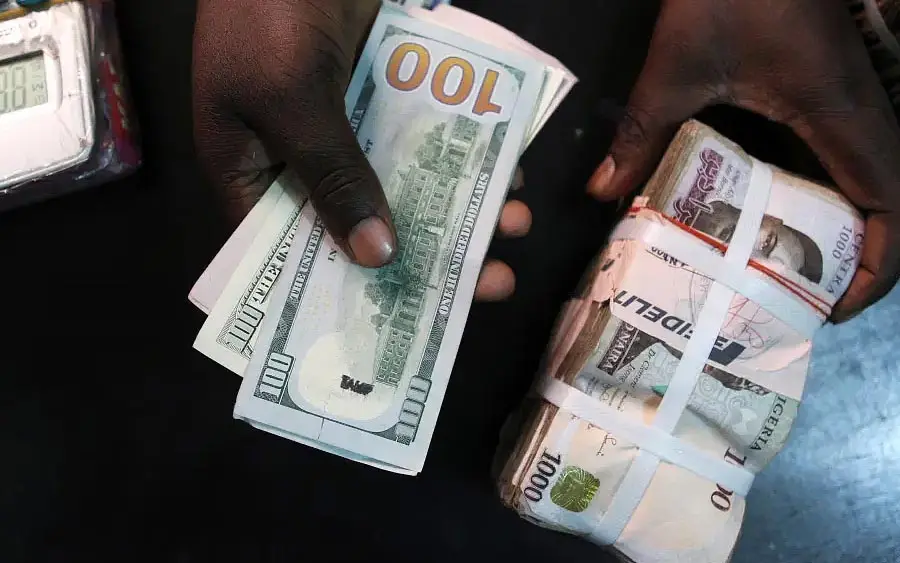The naira closed trading at N1035.12/$ on the official Investor and Exporter foreign exchange window on Wednesday.
This is a 4.72 per cent decline from the N988.46/$ it closed trading on Tuesday according to data from the FMDQ Securities Exchange.
In the first two trading days of 2024, the national currency has recorded a decline and Wednesday’s is the third time ever that it closed above N1,000/$ since the Central Bank of Nigeria removed its rate cap.
On December 8, the naira fell to an all-time low of N1,099.05/$ on the I&E window, after a slight recovery it fell on Thursday, December 28, 2023, to N1043.09/$.
On Wednesday, the naira began trading at N932.67/$. It hit an intraday high of N1,224/$ and a low of N700/$ before closing at N1035.12/$. Total forex turnover for the day stood at $85.68m.
The naira’s bad start to 2024 is despite the $2.25bn foreign exchange support facility from the African Import-Export Bank the Federal Government recently received.
According to the Minister of Finance and Coordinating Minister for the Economy, Wale Edun, the first tranche of its $3.3bn facility from the bank is aimed at resolving FX shortages in the economy.
This loan is part of a facility the Nigerian National Petroleum Company Limited announced that it secured in August 2023.
The naira continues to rank as one of the worst-performing currencies. In 2023, Bloomberg stated that the currency had one of its worst years and 2024 might not be better.
In its December Nigeria Development Update, the World Bank noted that the naira has depreciated against the US dollar by 41 per cent in the official market and by 30 per cent in the parallel market. It said the naira needs increased volume to achieve stability in the official market.
It stated, “Further monetary policy tightening is expected to help underpin the value of the naira. However, there is also a need to increase FX supply in the market. Facilitating FX flows, especially from all exports, through the NAFEM can help provide additional volumes in the official window that can help provide stability.
“In addition, clarity on the CBN’s net reserve position, and on the CBN’s continued progress in clearing the FX backlog, would also strengthen market confidence.”
SOURCE: PUNCHNG











